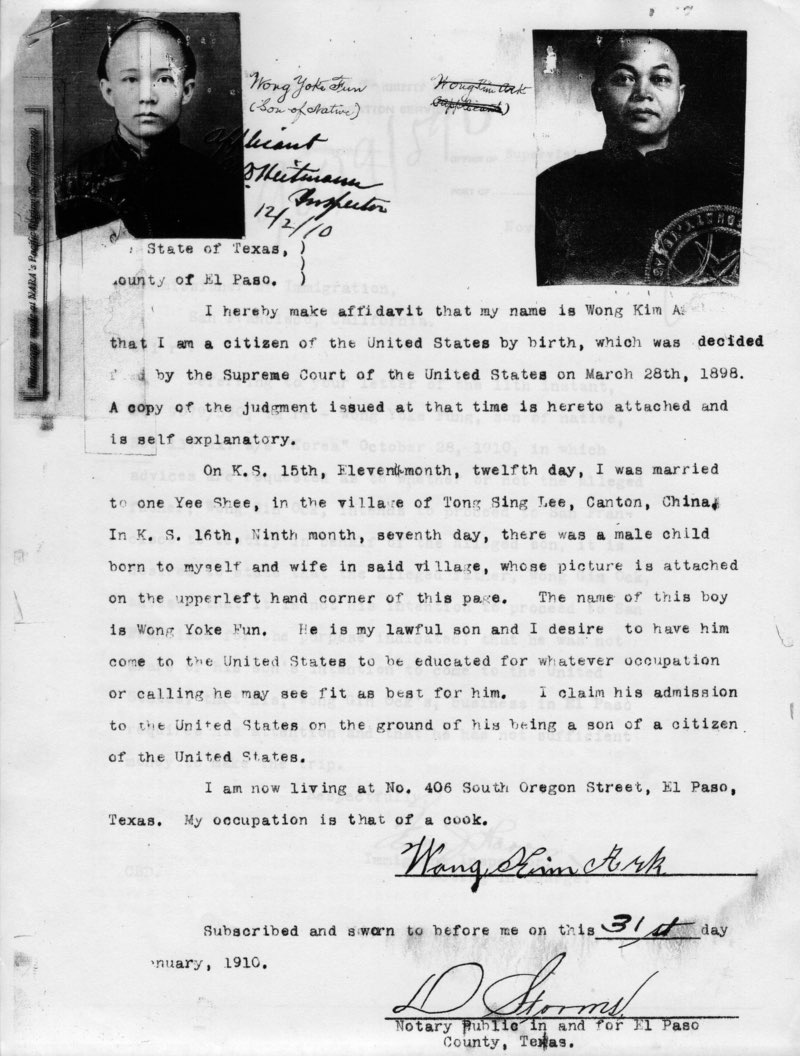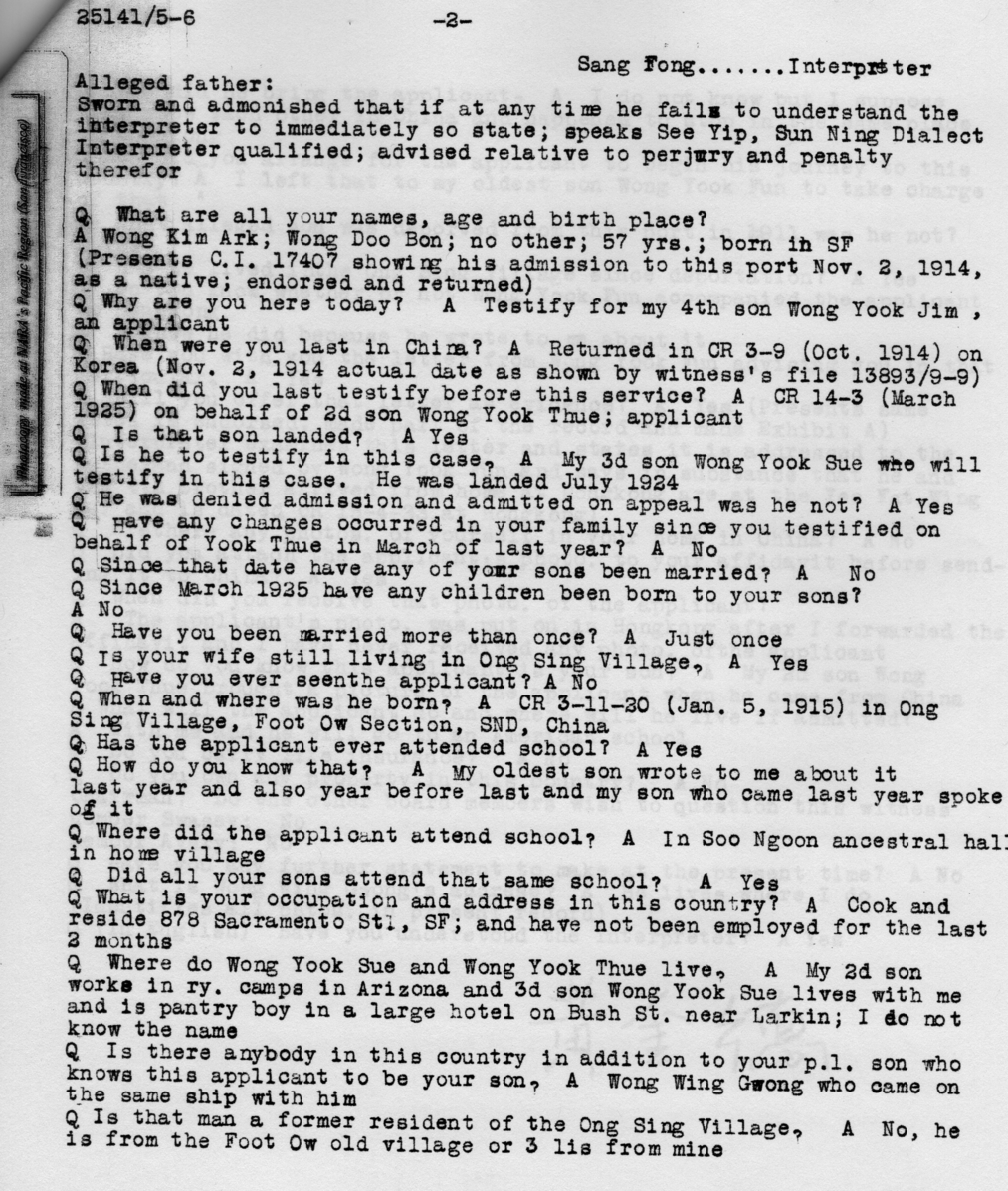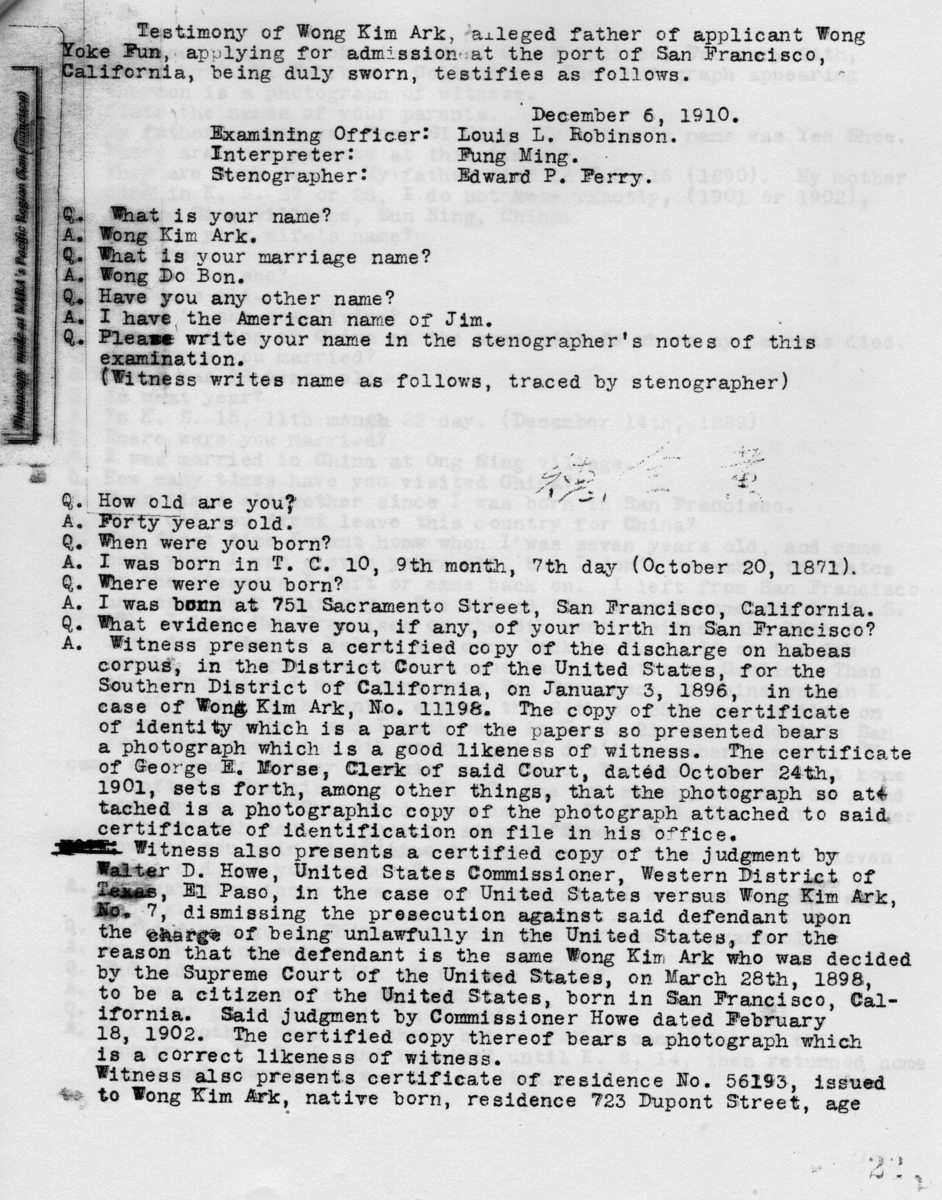Short Term Impacts
The short-term impacts of Wong Kim Ark's citizenship were mainly cultural, due to a change in national social stigma. Changes in family structure, regarding the notion of citizenship, in immigrant families commenced. In comparison, white-American culture met a turning point in racial divisions exacerbated by legislation such as the Chinese Exclusion Act. However, this did not change the outcome, which was the expansion onto a new frontier of citizenship rights in the United States.
~ Smithsonian Magazine March 27, 2023
Impacts within Wong Kim Ark's Family
On March 28, 1898, Wong Kim Ark’s citizenship was confirmed, as per the Supreme Court.
“In a 6–2 decision issued on March 28, 1898, the Supreme Court held that Wong Kim Ark had acquired U.S. citizenship at birth.”
~ Wong Kim Ark Is a Citizen: Supreme Court Decision in Case of Chinese Born in America, (Washington Post, 1898)
“The American citizenship which Wong Kim Ark acquired by birth within the United States has not been lost or taken away by anything happening since his birth.”
~ The American Journal of International Law, Volume 8 (Voorhis, Baker)
His eldest son attempted to gain his own recognition as a citizen, but was not admitted after the immigration officials determined Wong’s claim of paternity as false. However, his other three sons attempted to immigrate to the U.S. and were accepted as citizens under jus sanguinis.
“Denial is recommended by the examining inspector… because of material discrepancies and contradictions in the testimony.”
~ “Findings and Decree” regarding Wong Yoke Fun’s application to immigrate to the US (1910)
“Jus sanguinis, noun: a rule that a child’s citizenship is determined by its parents’ citizenship.”
~ Merriam Webster Dictionary
Changes in Family Structure
History saw changes following the recognition of legal family ties such as marriage. For example, widowed wives of Asian ancestry could be separated from birthright citizen children while awaiting deportation. On the other hand, women who married Asian noncitizens were encouraged to seek divorce to reinstate citizenship.
"Federal judges used their discretion to admit or deny wives traveling under more complex circumstances, including with children or while pregnant."
Japanese 'Picture Brides' gaining legal immigration through marriage, 1920
Chinese American children, Olympia, Washington, 1919
American legislators also tried submitting other unsuccessful legislative bills to strip children born to unnaturalized parentage of birthright citizenship.
"Mixed-status Asian American families composed of birthright citizen children and noncitizen parents continued to face the threat of separation, leading some to choose voluntary deportation instead."
~ Smithsonian Magazine March 27, 2023


